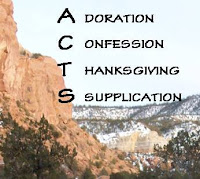We aren’t
supposed to wallow in our sin, though. The next step is to repent and turn
around, stop doing things that we know aren’t really quite what God wants us to
do. Quit acting in ways that are contrary to the mandate to “love one another
as I have loved you”.
How do we
do that? We take time to be with God who loves us, like a parent-a father or
mother. We cuddle up in God’s arms and say, “I’m sorry and I’ll try to do
better.” That’s called prayer. And some of us are intimidated by it.
Consider
it conversation with God rather than some big report that you have to come up
with and use fancy words in. Do you talk to your friends with ‘$100 words’? Or
do you just chat? While conversation with God is maybe a bit more than an
informal chat, it is still not something you have to prepare for. Just sit down
and open your heart to the One who loves you more than you or I understand.
This Lent
might be a time to try out a different prayer style or new prayer discipline.
If it doesn’t feed your spirit and bring you closer to God, you can always
abandon it. However, you may find a new route to conversation with God. An easy way to begin is by using the ACTS touchstone to pray (Adoration, Confession, Thanksgiving, and Supplication).
There are
some other special disciplines that can help us focus in our praying. Last year,
about this time, I posted a series of prayer aids on the Varieties of Gifts
blog. You can check them out here. Some suggestions are things like
praying with the psalms, keeping a prayer journal, arrow prayers, 5 finger
prayers and using a rosary.
Other aids can be candles, walking, vigils and many others.
Sometimes
we try a prayer discipline and it just doesn’t feel comfortable. We struggle
while others rave about how great it is. Things like Centering Prayer and
Journaling can be a good fit for some and difficult for others. That’s because
we have different prayer personalities. These have fancy names like Augustinian
and Ignatian, Thomistic, and Franciscan. If you know your Myers Briggs
personality, you can look up which type might fit you here. Having said that, don't give up on something new after just one try-you may discover that sitting in the quiet of contemplative prayer or writing and drawing your thoughts in a journal are actually helpful-once you get used to the discipline.
Next time,
we’ll take a look at one specific prayer and spiritual aid: Journaling. This
isn’t something that everyone thinks they will like, but there are many ways to
journal that don’t involve just writing pages and pages of your thoughts. Check back for some hints.




